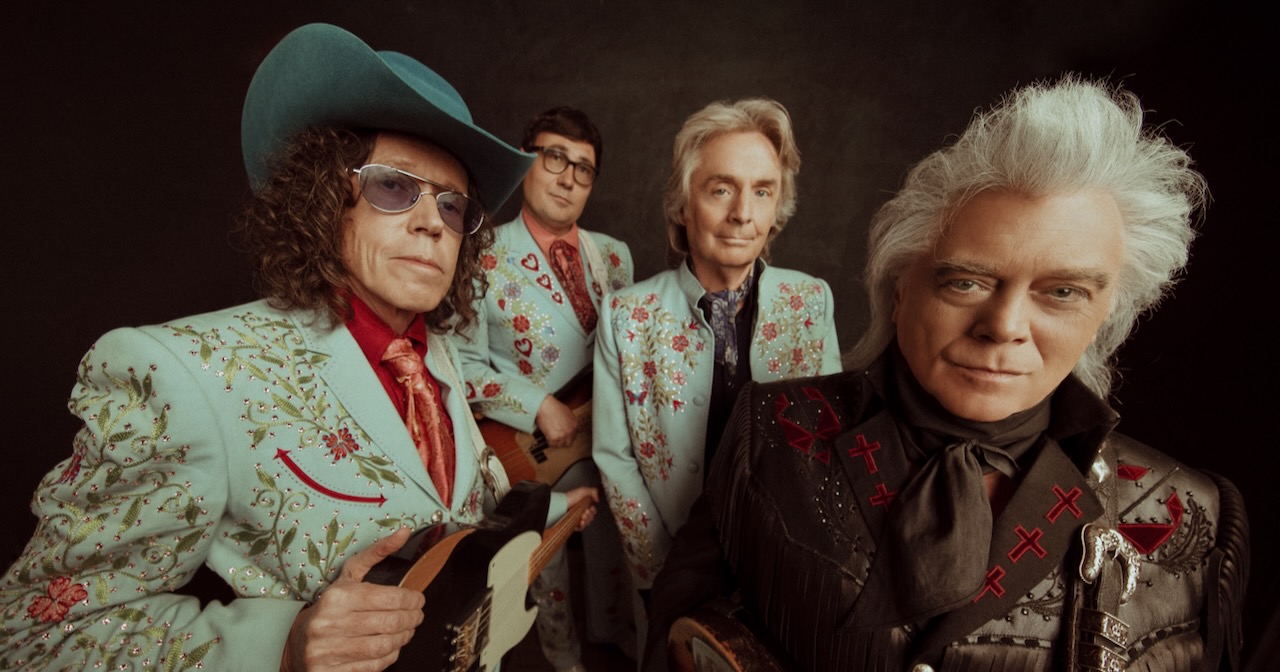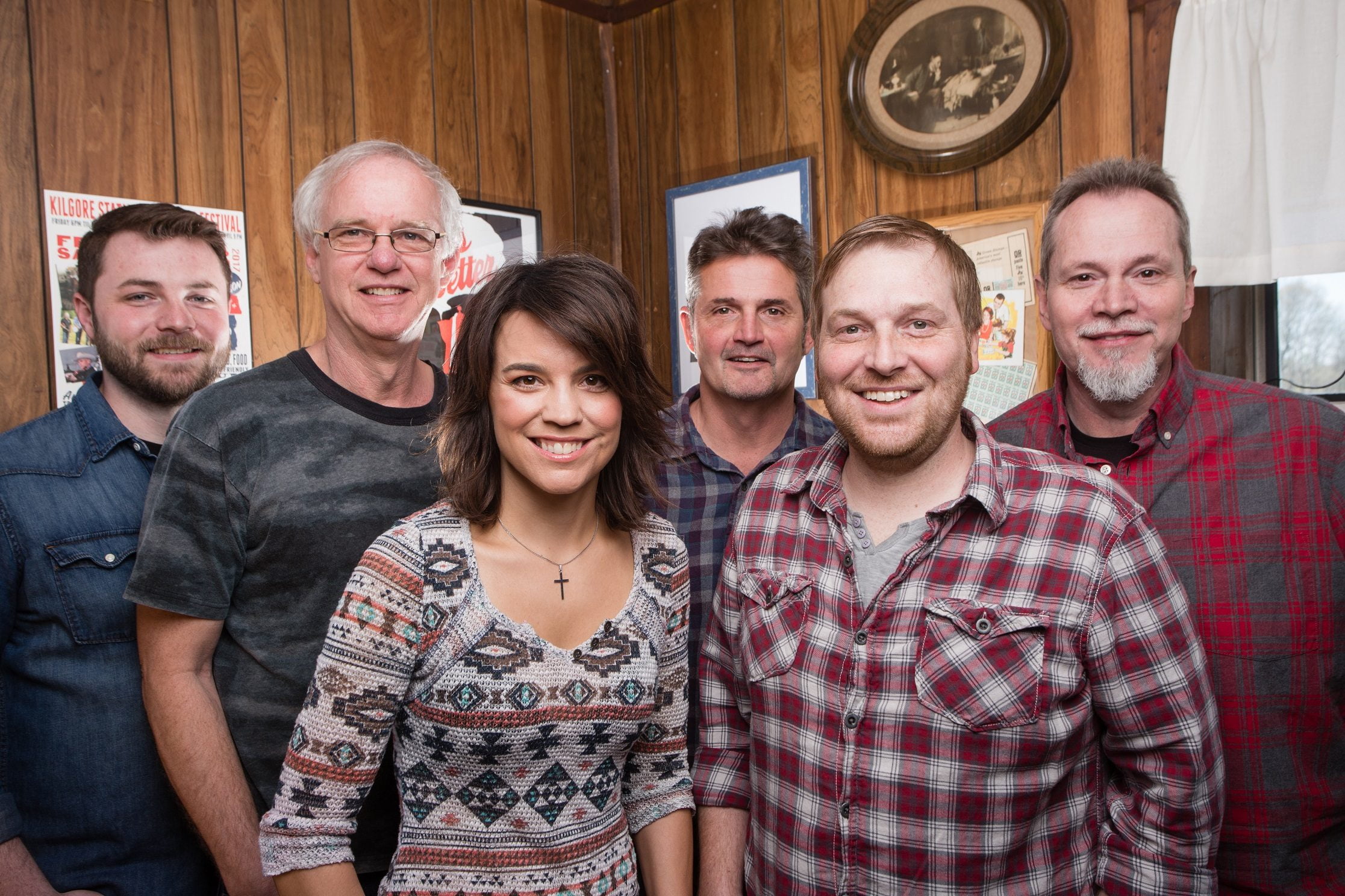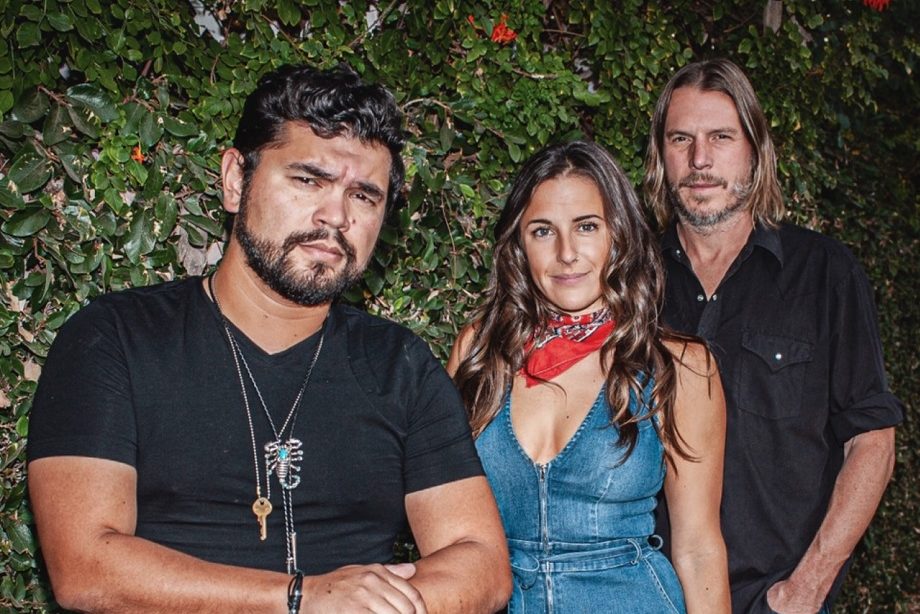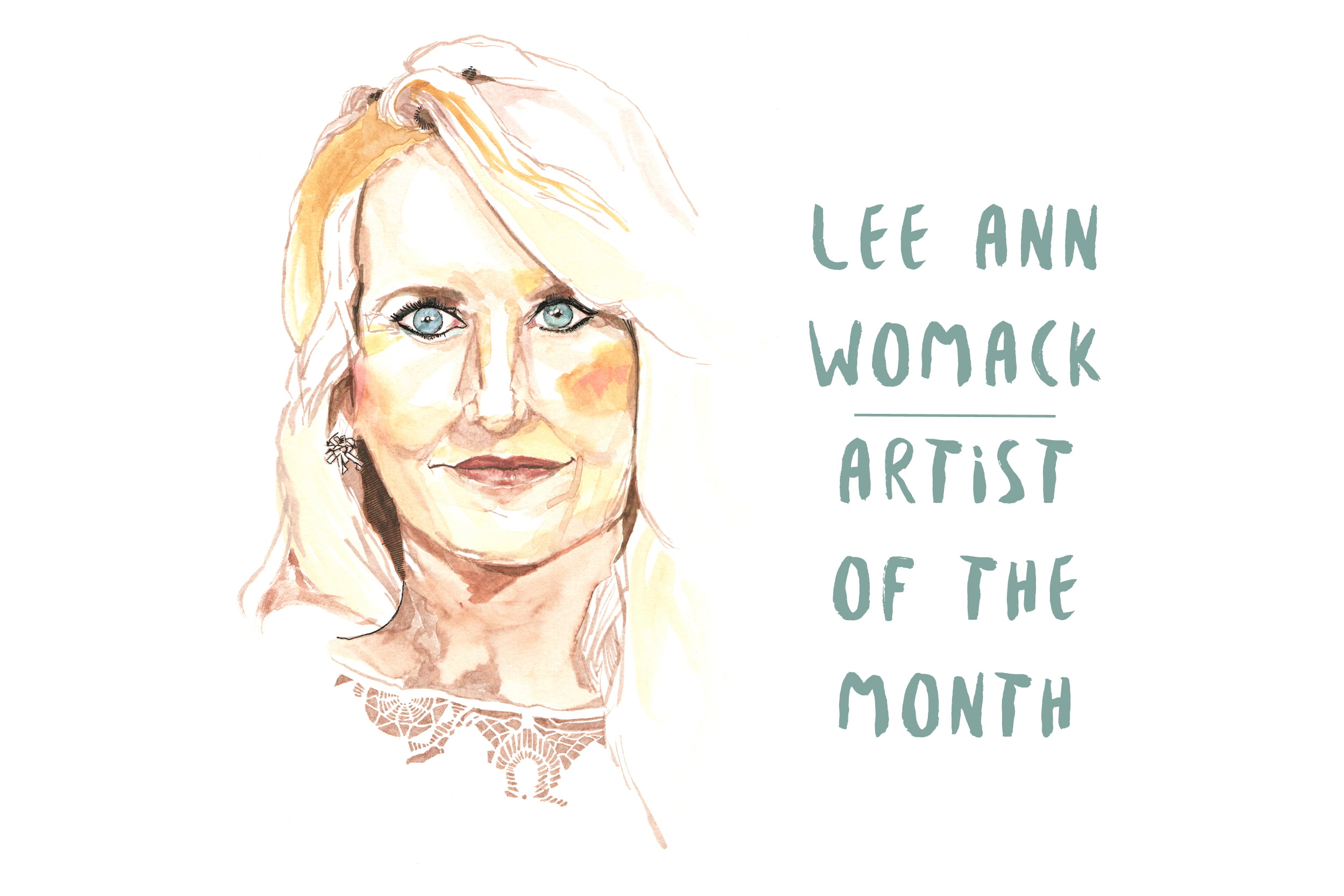Told that a song on his new album brings to mind The Doors, Marty Stuart is bemused, but open to the idea.
“Did it?” he responds during an interview. “That’s fine. If so, why not?”
“Nightriding,” from new album Altitude by Stuart and His Fabulous Superlatives, kicks off with droning guitars, then evolves to a riff somewhat like that of Jim Morrison’s “Roadhouse Blues”
“Cadillac, sundown,” Stuart intones. “Think I’ll investigate this town.”
To be clear, most of the cuts on the Altitude are more evocative of The Byrds than The Doors. So, is Marty Stuart really a country music traditionalist, as many people perceive him? Yes. And also no.
“I’m totally fine with it,” Stuart says when asked if the country music purist reputation is OK with him. “It’s a self-appointed mission. But my comment would be that country music has broad shoulders.”
Dante Bonutto, who heads up Snakefarm Records, which is releasing Altitude, says that Stuart has earned the right to experiment.
“Since he’s definitely someone who pretty much invented the wheel, he’s allowed to put different spokes on it when he wants to, I think,” Bonutto said.
Stuart, who’s been a bluegrass prodigy, a mainstream country music star, and remains a prodigious collector of country music artifacts, was born in 1958, making him a child of the 1960s, with all that comes with it.
“I still think of when The Byrds and Bob Dylan and all those guys came to Nashville to make their records in the late ‘60s,” he says. “That is like contemporary stuff to me. …That was the stuff that touched me when I was growing up, so it was just a part of country music to me.”
At a recent benefit concert for Northwest Mississippi Community College, Stuart’s base was definitely country — he and the group appropriated the whole history of the genre as their back catalogue, doing songs by Merle Haggard (“Brain Cloudy Blues”), Marty Robbins (“El Paso”), Waylon Jennings (“Just to Satisfy You”) and Stuart’s own hits from the early 1990s such as “The Whiskey Ain’t Workin.’”
The casually virtuosic Fabulous Superlatives band (Kenny Vaughan on guitar, Chris Scruggs on bass and Harry Stinson on drums; all of them sing) wore matching glitter-flecked black suits, and Stuart’s performing style still owes a debt to his former boss and mentor Johnny Cash.
But that wasn’t all. During the hour-long set before a well-heeled audience dressed in tuxedoes and evening gowns, there was also a Woody Guthrie indictment of the rich, a mandatory gospel number, and a big helping of surf rock, obviously a favorite of Vaughan in particular.
“We hereby declare Senatobia, Mississippi, as the surf capital of the world,” Stuart announced before Vaughan launched into a Telecaster version of “House of the Rising Sun.” Also, “Wipeout” was played by Scruggs solo on the upright bass, with Stinson slapping out the drum solo on the cheeks of his face.
“Well, it doesn’t really matter how people categorize us,” Stinson said. “If anybody’s interested in what you’re doing, then they listen a little bit deeper and find a much wider spectrum, in terms of the music. I think Marty is much more than just a traditional country artist. He came from that world and uses that as a place to plant himself, and then branches out in different directions.”
Possibly because the Altitude album hadn’t been released yet during the March 25 concert in Mississippi, that audience didn’t get a taste of its cosmic, sometimes psychedelic country music.
The album’s beginnings go back to 2018, when Stuart, Vaughan, Stinson, and Scruggs toured with Roger McGuinn and Chris Hillman to celebrate the 50th anniversary of the pioneering country rock album Sweetheart of the Rodeo by The Byrds. McGuinn and Hillman were original members, along with the late Gene Clark, David Crosby, and Michael Clarke.
“That was Roger McGuinn’s idea,” Hillman recalled. “Roger had done some dates with Marty; he knew him really well. …He knew the Superlatives would be right on the money because he had done a couple of Byrds songs with them onstage.”
Hillman rates the Superlatives as “the best band probably in this country right now, if not the Western Hemisphere.”
“We had so much fun doing the Sweetheart of the Rodeo Tour,” said Hillman, who was also a member of the Flying Burrito Brothers and Desert Rose Band. “The arrangements were the same as we did on the album in 1968,” he said. “We played the songs better, but we didn’t change anything. It was a joy to go back out and do those songs, especially with the Superlatives.”
Stinson says the tour with The Byrds was “a joyous experience.”
“I got to play with some of my heroes,” he said. “I grew up on those records and so to get to play that music, especially the Sweetheart record, which was kind of groundbreaking. I got to go back through it and really dissect it, and then put it on stage. It was surreal for me.”
The Sweetheart of the Rodeo Tour, coming around the same time Stuart and the Superlatives were opening for Chris Stapleton and the Steve Miller Band, had a profound effect on Stuart’s songwriting.
“It got me in the mood to write songs with all the sounds that were left hanging around in my head,” Stuart said. “We were hot on those ideas, and I just carried the inspiration in with me.”
Like a lot of albums released in the past year, Altitude was recorded while COVID-19 was at its height.
“We rehearsed,” Stuart said. “Most of the producing of this record was done in dressing rooms and at soundcheck and trying songs out there in shows before we ever went to the studio.” The original plan to record was ruined by the coronavirus.
“We were hot, we were ready to go to Capitol Studios in Hollywood (California), and make a record,” Stuart said. “Well the pandemic crashed and Capitol Studios shut down, so we found East Iris Studios (in Nashville). We put on our masks and stood 6 feet apart and soldiered on.”
“I’m glad everybody agreed to do that, because I think this record would not have sounded like it does if we would have had to wait several months and relearn it.”
The album’s Byrd-like sound, complete with the jangling guitars that are McGuinn’s trademark, has Hillman’s endorsement.
“What they’ve done is not a tribute to The Byrds,” Hillman said. “It just has a few little nice, ever-so-tasty hints of what we did.”
Hillman thinks the driving “Country Star,” which also owes a debt to Chuck Berry, has the feel of Byrd’s songs such as “So You Want to be a Rock ‘n’ Roll Star.”
“There’s a lot of influence there — not overtly, but it just is there. Marty doesn’t stray far from the well, meaning the bluegrass well. I never did either.”
Stuart’s ability on mandolin shouldn’t be overlooked, Hillman said. “Marty is an unbelievably gifted musician,” he said. “I love Ricky Skaggs’ playing and Ronnie McCoury,” he added. “But I told Marty when we were on the road, ‘You got that machine gun hand.’ He says, ‘Yeah, that’s Everett Lilly.’”
Lilly (1924-2012), played mandolin and sang tenor with the Lilly Brothers and Don Stover. He also spent a couple years with Flatt and Scruggs.
“(Lilly) had that cool right hand and when he took a break on ‘Earl’s Breakdown,’ when he played with Flatt and Scruggs, it was great,” Hillman said. Factor in Vaughan on guitar in the Superlatives, and “you can’t get any better,” Hillman says. “But it’s two different approaches to music.
“Marty really grasped ahold of the pulled string stylings of Clarence White (who played with The Byrds and Kentucky Colonels before his 1973 death)”, and then Kenny “is so good, all over the place.”
“He doesn’t overblow; he plays just what is needed,” Hillman said of Vaughan.
While Stuart released his last album, Way Out West, on his own Superlatone Records, he’s partnered with Snakefarm, a subsidiary of Universal Music Group, for Altitude.
Bonutto, a journalist and record company executive, heads up the roots-rock focused Snakefarm and its sister label Spinefarm Records, which specializes in heavy metal. In addition to Stuart, Snakefarm has acclaimed Southern rocker Marcus King on its roster.
“(Stuart is) obviously an artist I’ve always been aware of, because I love country music and I’m aware of its legacy,” Bonutto said. “The first time I saw him was when he played the Country to Country (music festival) in London, which is a big annual country music event. I thought his personality was fantastic and his playing is obviously unbelievably good.”
Bonutto wrangled a quick meeting with Stuart at the festival, but had to wait a while before Stuart and his management were ready to sign a new record contract.
“I’m trying to build the Snakefarm label into a global entity [in Americana music],” he said. “The best way you can build anything is to attach yourself to people who are legendary and iconic. Hopefully you do an amazing job for them and they speak well of you and they become part of the fabric of what you do.”
Bonutto noted that Stuart, who is also a photographer and working on a facility to display his country music artifacts, is not “a one-dimensional character.”
“He’s a man with a fantastic vision,” Bonutto said. “I think that comes across in the other things.”
Stuart is a leading collector of country music memorabilia, and he’s working on a $30 million museum to display it in his hometown of Philadelphia, Mississippi. A 500-seat theater is already open, and 50,000-square-feet of exhibit space for 20,000 artifacts will be the second phase. An education center is planned after that.
“I was a fan, going back to those country or gospel groups or bluegrass groups who come through my hometown when I was a kid,” Stuart said. “I’d always buy a record and ask for an autograph or ask one of the pickers if I could grab a pick.”
In the 1980s, he observed that “old timers, the pioneers, the people who had raised me, were being disregarded.”
“Their treasures, their personal effects, their guitars and costumes, were winding up in junk stores around Nashville,” he said. “I found Patsy Cline’s makeup kit for 75 bucks in a junk store on Eighth Avenue in Nashville. I couldn’t believe it.”
Stuart met Isaac Tigrett of Hard Rock Café in London, and he showed Stuart how that restaurant chain was investing in and exhibiting rock music memorabilia.
“Even though it was a hamburger joint, I understood the importance of them collecting and curating stuff from The Beatles and the Stones and The Who. … Beyond the Country Music Hall of Fame, I didn’t see anybody doing it, so it just became a self-appointed mission to start rescuing a lot of those things that were winding up in junk stores.”
Stuart’s collection includes treasures such as the handwritten lyrics of “I Saw the Light” and “Cold, Cold Heart” by Hank Williams Sr., the boots Patsy Cline was wearing during her 1963 fatal plane crash and Cash’s first all-black performance outfit.
Speaking of country music history, Stuart began his career in bluegrass backing up Lester Flatt before joining Cash’s band. He’d like to return to those roots and record a bluegrass album.
“I need to, I need to,” he said. “But it needs to be authentic. It needs to be the real deal, blood-curdling bluegrass.”
Photo Credit: Alysse Gafkjen




